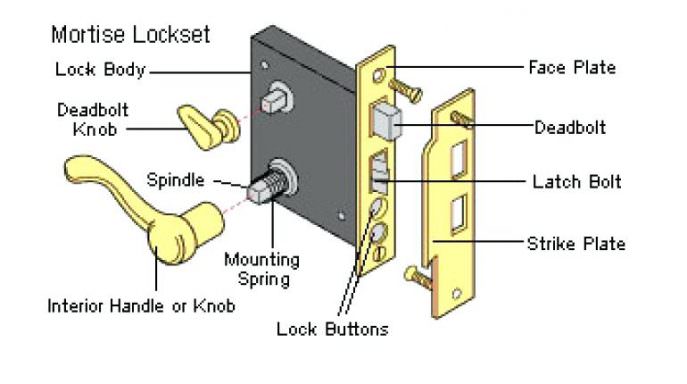I believe the word you need is the verb deadlock. (Not to be confused by the noun a deadlock, which is a metaphorical sense.) It corresponds to turning the deadbolt in your diagram, as opposed to the latch-bolt.
When you deadlock a door, it is locked, full stop! It cannot be opened without a key (unless there is a deadbolt knob on the inside) . A traditional mortise-lock, such as we have on our front door (as well as a latch-lock) can only ever be opened, on either side, with the key.
During the day, whilst we are around we normally keep it on the latch. But at night and when we go out we turn the mortise deadlock.
Older properties such as ours (built 1900) usually have mortise locks. But our rear door, which is on a much newer part of the house, also has one.
It means, if you have such a lock, to remember at night to leave the key close to the door in case you have to get out in a hurry, in the event of fire.
What you have is a lock which combines both a deadbolt and a latch-bolt, both turned with the same key, but which is not effective for the deadbolt until the key is turned 90 degrees.
You need to ask your friend not to deadlock the door, when he goes out.

